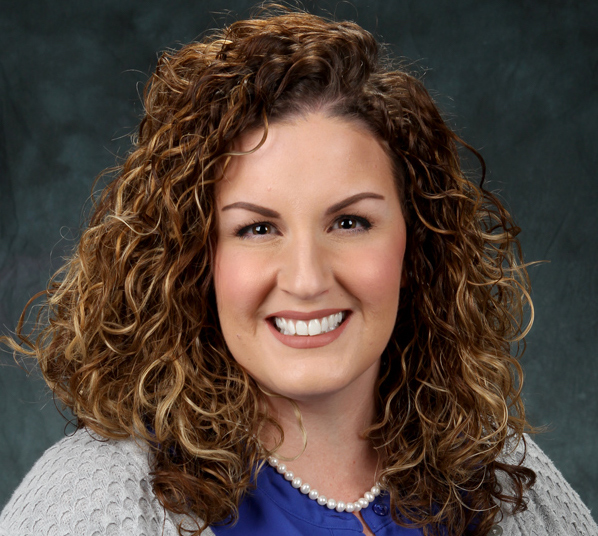Urges Others to Address Symptoms, Undergo Preventive Screenings
March 24, 2023
 Chrissy Quartuccio-Carran, DO, FAAFP, is the Program Director for The Valley Health System Family Medicine Residency Program in Las Vegas. Her professional interests include women’s health and preventive care. Outside of work she enjoys spending time with her family, hiking, cooking and interior decorating.
Chrissy Quartuccio-Carran, DO, FAAFP, is the Program Director for The Valley Health System Family Medicine Residency Program in Las Vegas. Her professional interests include women’s health and preventive care. Outside of work she enjoys spending time with her family, hiking, cooking and interior decorating.
“You have cancer.” As a family physician, I am more than familiar with the gravity these three words hold; never would I have imagined that I would be on the receiving end of hearing it. In 2022, at age 38 and with no family history of colorectal cancer, I received a diagnosis of Stage 3 Rectal Cancer.
What started as a small amount of blood in my stool turned out to be rectal adenocarcinoma. After having a baby the year prior, I initially wrote my symptoms off as possible hemorrhoids, something that many women experience in pregnancy and during post-partum period. With that in mind, I added more fiber in my diet, drank more water, and increased my physical activity, all of the things that I would counsel patients to do, yet nothing seemed to change. It was not until my stool started to become narrower in size that I knew these symptoms must be caused by something else.
I went through all the possible reasons and contacted my gastroenterologist, knowing that the best way to get a definitive answer was to have a colonoscopy. After the colonoscopy was over, my gastroenterologist asked if he could speak with me. When he showed me the picture of a large mass in my rectum, I was in disbelief. My first thought was, “These pictures can’t be mine. There must have been a mix up.”
After CT scans, MRIs, and a PET scan, there was no doubt. I had cancer.
As a doctor who became the patient, I experienced the same vulnerability and fear of the unknown that many of my patients have presented to me with. Thankfully I have had an incredible medical team that has guided and cared for me throughout this journey, and after many months of chemotherapy and radiation, I am now grateful to say that I am in remission.
For individuals such as myself, who are younger than 55 years old, there has been an alarming rise in colorectal cancer diagnoses. Recent data from the American Cancer Society® has shown a significant rise in the prevalence of colorectal cancer from 11% (1 in 10) in 1995 to 20% (1 in 5) in 2019. This year alone, it is anticipated that 153,020 people will be newly diagnosed with colorectal cancer and often diagnosed at more advanced stages.
If I could give two pieces of advice from my journey; first, do not ignore your symptoms, and second, talk to your doctor about your risk factors and preventive screenings. It’s easy to get caught up in the daily hustle and bustle and put off that necessary call; I know I did. I hesitate to think now what could have happened if I had waited any longer.
In 2021, the American College of Gastroenterology released updated guidelines recommending colorectal cancer screening to begin at 45 years of age, lowered from 50 years old, for individuals with average risk factors. Talk with your doctor about your risk factors and strategies to optimize your health and minimize your risks.
Learn more about Colorectal Cancer Facts and Figures 2023-2025 from the American Cancer Society →
Article References:
Shaukat A, et al. ACG Clinical Guidelines: Colorectal Cancer Screening 2021. The American Journal of Gastroenterology 116(3):p 458-479, March 2021. DOI: 10.14309/ajg.0000000000001122. Accessed from https://journals.lww.com/ajg/fulltext/2021/03000/acg_clinical_guidelines__colorectal_cancer.14.aspx.
